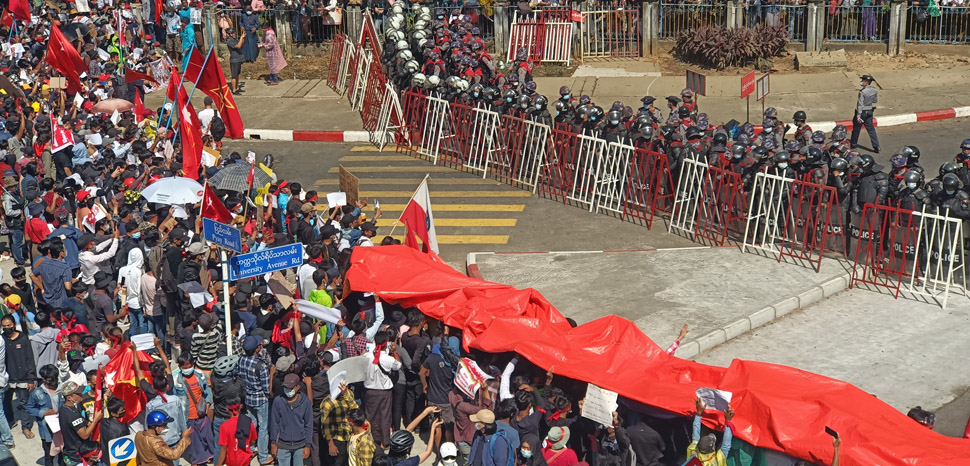Summary
The military coup in Myanmar, which saw Aung San Suu Kyi and other elected leaders detained in pre-dawn raids on 1 February, marked an abrupt end to ten years of democratization which had propelled the National League for Democracy (NLD) to power. The Tatmadaw takeover has also dashed hopes of peace in border regions home to ethnic minorities, where rebel groups have fought the Tatmadaw for decades. Since seizing power, the army has moved to scrap the civilian peace negotiating mechanism.
It is true that the peace process was already faltering under Aung San Suu Kyi. Five years of discussions had resulted in only vague principles being agreed between Naypyidaw and ten ethnic armies based in the south. Major issues related to autonomy and self-governance remained untouched, while the most powerful armed groups in the north and west remained outside of a national ceasefire agreed in 2015. After decades of Tatmadaw oppression, peace under the new junta now looks further away than ever.




